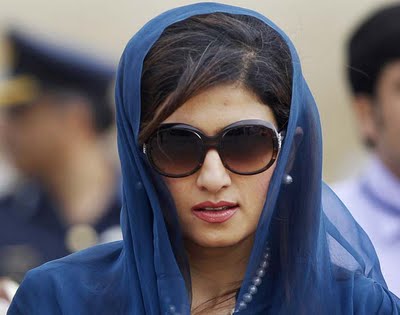Bejewelled, beautiful courtesans, a la Madhubala or Aishwarya Rai, are just an indulgence in Mughal nostalgia. Hira Mandi, once a place of culture and tradition, has now been transformed into Lahore’s brand new Food Street.

- The painter Iqbal Husain converted his mother’s home in Hira Mandi to a restaurant, Cooco’s Den. Facelift of the street has been at the cost of culture.
Nirupama Dutt
WHEN Urdu writer Ghulam Abbas wrote a classic Urdu short story called Anandi way back in 1939, and inspired a memorable film by Shyam Benegal called Mandi in 1983, was he playing the role of a clairvoyant? Well, if one looks at the fate and fortune of Lahore’s Hira Mandi one would certainly believe so. Well prophecy does accompany major literary endeavour but it was more a case of understanding human nature and power games. The story is a satire on politics and prostitution, both professions having many common principles, in which a brothel occupied by sex workers in the heart of the city is chosen by some politicians for its prime locality.
A lifetime later, Hira Mandi of Lahore seems to have become the target of the politicians’ imagination and the area known better for its sex and sleaze in present times is now the place for the rich and famous to dine on the choicest delicacies of Pakistani cuisine and pay a pretty packet for the fare.The new Food Street is the realisation of Pakistani Punjab Chief Minister Shahbaz Sharif’s dream to replace the Food Street created by his predecessor Pervez Elahi’s at Gwalmandi in president Pervez Musharraf’s times. The V-shaped offshoot of the road connecting the Mandi to the Fort opened as Fort Road Food Street, with 27 buildings acquired for the project, opened business a couple of months ago. The old buildings have been renovated, painted and decorated to supposedly resemble the Mughal architecture of yore and Pakistani newspapers report that concentrated here are the business interests of multinational companies, business tycoons and others close to the ruling party.
Maryam Rabi, an architect at the Agha Khan Cultural Service, Pakistan, working on the walled city of Lahore, criticises the makeover in a blog for The Dawn: “On visiting the Fort Road Food Street, one would expect to be introduced to the true culture and experience of the walled city – the project, however, rarely brings forth that opportunity and instead presents a ‘Disneyfied’ version of itself to the public. The words, conservation, restoration and protection are widely misunderstood in most of Pakistan. What has been implemented on the Fort Road is merely a superficial facelift and a complete disregard for its historic context and cultural value.” French journalist Claudine Le Tourneur d’lson, who recently released her novel called Hira Mandi in India and Pakistan, disparages the appropriation of the buildings, and says her 1988 visit there showed how the red-light area of Lahore was different from those of Mumbai or Cairo: “There can be no comparison. In Mumbai or Cairo all you see is flesh trade. Nothing more, nothing less. In Hira Mandi you saw colour, you saw dance, you heard music. There was a culture to it. Sadly, it is no longer there. The girls have mostly gone to the UAE, where they make more money and where there is no moral police. The ones who have stayed behind practise their profession in posh localities of Lahore or are at the beck and call of hotel guests.”
 Hira Mandi, which came up as the bazaar of the courtesans during the Mughal period and was reduced to the red-light area in modern times, is certainly in the royal neighbourhood just behind the grand Badshahi Mosque built by Emperor Aurangzeb. While some of its sanctity was lost in colonial times, it yet retained its grandeur, giving some great singing stars to the radio and films. Pran Nevile, the chronicler of Lahore, describes it thus: “It would be a mistake to take Hira Mandi for a prostitute’s street, which certainly it was not, even though some of its inmates carried on the world’s oldest profession for a living. The courtesan’s home was essentially a place of culture when some of the singing and dancing girls found their place into the royal court.”
Hira Mandi, which came up as the bazaar of the courtesans during the Mughal period and was reduced to the red-light area in modern times, is certainly in the royal neighbourhood just behind the grand Badshahi Mosque built by Emperor Aurangzeb. While some of its sanctity was lost in colonial times, it yet retained its grandeur, giving some great singing stars to the radio and films. Pran Nevile, the chronicler of Lahore, describes it thus: “It would be a mistake to take Hira Mandi for a prostitute’s street, which certainly it was not, even though some of its inmates carried on the world’s oldest profession for a living. The courtesan’s home was essentially a place of culture when some of the singing and dancing girls found their place into the royal court.”
The settlement came to be known by this name after a General of Maharaja Ranjit Singh called Hira Singh Dogra who lived in the vicinity. Many an exceptional musical talent was nurtured in the kothas here, including Noor Jahan of theAwaaz de kahaan hai-fame who rose to get the title of Malika-e-Tarannum in Pakistan. She is remembered well for her sonorous rendition of the poetry of Faiz Ahmad Faiz. Sardar Bai is still remembered. There were others who made it to Hindi films like Mumtaz Shanti, Shamshad Begum and Khurshid and others who were a hit on the radio, including inlcuding Umra Zia who became a radio star of the 1930s, singing Mera salam le ja, taqdeer ke jahan tak. Nevile has fond memories of Gulzar Begum,daughter of the accomplished tawaif Sardar Begum, popularly known as Tamancha Jaan, radio star of the 1940s, whom he went to meet in Lahore when he took a pilgrimage to the past in 1997. “Most of my patrons were Hindus and Sikhs and they left Lahore with the Partition. Soon I shut down my salon and stopped singing and educated my children.” Munni Bai, who supported by singing on kothas the music career of Ustad Amir Khan, one of the greatest exponents of Hindustani Classical music and founder of the Indore Gharana, was originally from Hira Mandi.
Courtesy: The Sunday Tribune
Classical arts lost out to popular folk and film numbers and the era of ‘keeps’ or ‘mistresses’ ended and vulnerable sex workers grew out of the Mandi, with little protection and no patronage. And now their habitation is valuable real estate and up for grabs. Perhaps even the writer Ghulam Abbas could not envisage way back in the 1930s that the Mandi would come to such a pass.
Penning their lives
 SELLING love and saving dreams in the Pakistan’s ancient pleasure district was the poignant sub-title of British sociologist Louise Brown’s book The Dancing Girls of Lahore,published in 2005. The past decade has seen several women writers from Pakistan and abroad picking up the pen and telling the dismal stories of their sisters in Hira Mandi. Brown, a lecturer of sociology in the University of Birmingham, spent four years in Hira Mandi studying the wretched the lives of the descendants of the women of culture and grace before picking up the pen to tell their stories.
SELLING love and saving dreams in the Pakistan’s ancient pleasure district was the poignant sub-title of British sociologist Louise Brown’s book The Dancing Girls of Lahore,published in 2005. The past decade has seen several women writers from Pakistan and abroad picking up the pen and telling the dismal stories of their sisters in Hira Mandi. Brown, a lecturer of sociology in the University of Birmingham, spent four years in Hira Mandi studying the wretched the lives of the descendants of the women of culture and grace before picking up the pen to tell their stories.
The latest addition to the tales from these lanes and alleys is a novel called Hira Mandi by French journalist Claudine Le Tourneur d’lson and it is inspired by the life of the area’s well-known artist Iqbal Hussain, who was the son of a sex worker who studied art and became a teacher at the National College of Art, Lahore and realised his dream of freeing his sister and aunt from the bondage of selling their bodies night after night. He was also the first to convert his mother’s abode to a restaurant called Cooco’s Den. The story begins at the time of Partition and spans the next five decades during which Hira Mandi deteriorated from being a refined part of town where elegant courtesans and dancing girls held court to a crumbling red-light district.
Faryal Gauhar’s novel The Scent of Wet Earth in August came out in 2002 and it was based on her film Tibbi Gali. Teaching film-making at the National College of Art she told a poignant tale of a mute girl who yearns for a better life as she is caught in the dark world of her drug-addict mother and aunts who once sold their bodies. In telling this story she brings out many moving stories from the neighbourhood.
Social activist Fouzia Saeed’s book Taboo that also came out in 2002 takes an ethnnographic look at the sex workers of the Mandi. The book is a journey of discovery into the infamous red light district of Lahore tracing the phenomenon of prostitution coupled with music and dance traditions of in South Asia.
Related articles
- Tales from Hira Mandi (thehindu.com)
- Mughal art: might in miniature (guardian.co.uk)








